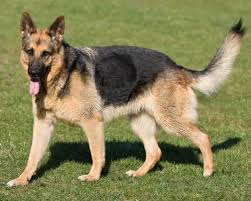Are green olives toxic to dogs? Olives are not toxic to dogs; however, they are high in fat and salt and shouldn’t be given to your dog regularly. High-fat diets put your dog at risk for pancreatitis. This illness will impact your dog’s ability to digest food and nutrients.
How many olives can a dog eat? We know that olives are not toxic to dogs, but are olives safe for dogs to eat? So long as the pit is removed first to avoid harmful toxins, you may safely feed your dog one or two plain, unsalted olives from time to time.
Can dogs eat olives with pimentos? Can dogs eat green olives with pimentos? Yes, they can, but only if pimentos are the only item stuffed in the olive.
Can dogs eat cucumbers? Are Cucumbers Safe for Dogs? Cucumbers are perfectly safe for dogs to eat, and offer a low-calorie, crunchy snack that many dogs love. Cucumbers only contain about 8 calories per one-half cup of slices, compared to the 40 calories in a single medium biscuit, and are very low in sodium and fat.
Are green olives toxic to dogs? – Additional Questions
Can dogs eat grapes?
The answer (and this goes for raisins, too, which are just dried grapes) is easy: No, dogs should never eat grapes. Grapes and raisins are known to be highly toxic to dogs, though research has yet to pinpoint exactly which substance in the fruit causes this reaction.
Is Pimento harmful to dogs?
The short answer is: Yes, pimientos are non-toxic to dogs. So, you can feed them to your dog without any problem, especially in moderation. If anything, pimientos pack a punch when it comes to nutritional value for your Fido.
Can my dog have pimento cheese?
Pimento Cheese: This southern classic is a fine snack to feed your dog. Pimentos are non-toxic and loaded with vitamin A and C, while cheese has healthy sources of protein and calcium.
Can dogs eat tomatoes?
Ripe tomatoes are considered nontoxic to dogs and can be fed in moderation as an occasional snack. While it’s considered safe for dogs to eat red, ripe tomatoes, the plants themselves are part of the nightshade family of vegetables (which also include potatoes, bell peppers, and blueberries).
Can dogs eat pickles?
In general, pickles are not toxic to dogs. They contain some nutritional health benefits, which in theory would make giving them to your dog perfectly fine. However, they are extremely high in sodium and contain ingredients that could be potentially harmful to a dog.
Can dogs eat popcorn?
Plain, air-popped popcorn is safe for dogs to eat in small quantities. Buttered popcorn or popcorn with other toppings is not safe for your dog on a regular basis, although eating a few dropped pieces here and there probably won’t hurt him.
Can dogs eat potatoes?
White potatoes belong to the nightshade family of vegetables, which includes tomatoes; like tomatoes, raw potatoes contain solanine, a compound that is toxic to some dogs. However, cooking a potato reduces the levels of solanine. If you do feed your dog a potato, it should be baked or boiled, with nothing added to it.
Can dogs eat french fries?
French fries are high in salt, fat, and carbs, which can lead to canine weight gain. Restaurant or fast food fries can be hazardous to dogs because of their exceptionally high salt content. Additionally, restaurant-prepared fries often contain seasonings harmful to dogs, like garlic or onion powder.
Can dogs eat ice cream?
Dogs Don’t Digest Milk Well
Eating ice cream may cause your dog a stomach ache or worse, depending on how sensitive they are. Ice cream can cause your dog gas, bloating, constipation, diarrhea or vomiting.
Can dogs eat mcdonalds nuggets?
No, Dogs really shouldn’t eat chicken nuggets. While your furry friend will be fine if they eat one occasionally, consistently eating chicken nuggets is very bad for dogs. What is this? That’s because chicken nuggets are loaded with fat and other stuff that’s harmful to dogs’ bodies.
Can dogs eat mashed potatoes?
Can dogs eat mashed potatoes? Yes, as long as the potatoes are roasted and not boiled and no salt, seasonings, milk or butter is added your pet can enjoy this all-time favourite dish. However, there isn’t much nutritional value your dog will be able to get from eating mashed potatoes.
Why can’t dogs eat ham?
Even the preservatives used in ham are loaded with nitrates and nitrites, which are sodium-based. In fact, salt can be toxic to dogs: it can lead to vomiting, diarrhea, excessive thirst and urination, lethargy, and abnormal fluid accumulation.
Can dogs eat pasta?
Dogs can eat plain white rice or pasta after it’s cooked. And, a serving of plain white rice with some boiled chicken can sometimes make your dog feel better when they are having stomach problems.
Can dogs have broccoli?
Yes, dogs can eat broccoli. Dogs can eat the vegetable both cooked and raw, as long as there are no seasonings or oils added. However, this vegetable should always be given in very small quantities, especially because the florets contain isothiocyanates, which can cause gastric irritation in dogs.
Are carrots good for my dog?
Yes, dogs can eat carrots. Carrots are an excellent low-calorie snack that is high in fiber and beta-carotene, which produces vitamin A. Plus, crunching on this orange veggie is great for your dog’s teeth (and fun) and it is included in many dog foods.
Can dogs eat cauliflower?
Can your dog eat cauliflower? Yes. Cauliflower offers many valuable nutrients, along with a bounty of antioxidants that boost your dog’s immune system and overall health. Fed in moderate amounts, cauliflower can be a healthy snack that’s suitable for overweight or diabetic dogs as well.
Is celery good for dogs?
Celery is listed among the vegetables that are safe for dogs by multiple sources, including the veterinary website Vetstreet.com, and is often recommended as a weight-loss treat. Celery is very low in fat and cholesterol and is an excellent source of fiber, vitamins A, C, and K, folate, potassium, and manganese.




